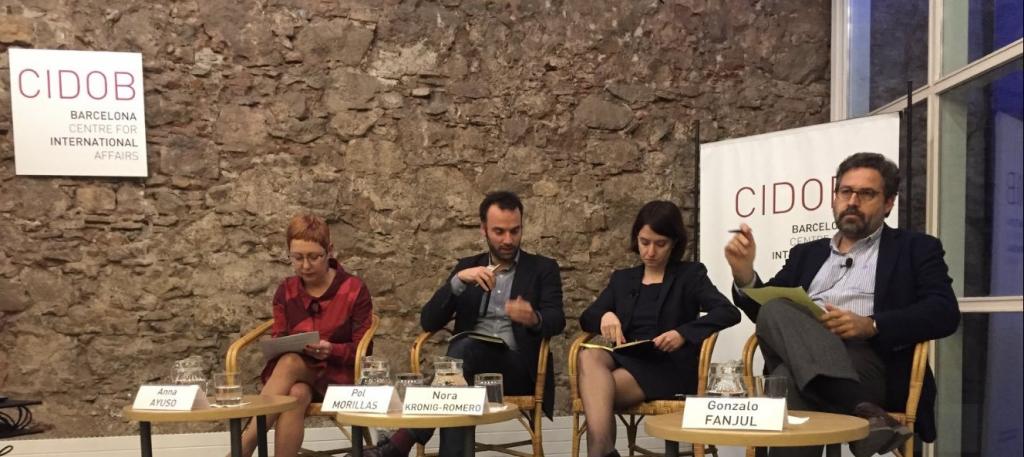The concern about the effects of disinformation in the political debate and the public opinion guided the dialogue held at CIDOB, Barcelona, on February 14, 2019. The conversation between Ambassador Nora Kronig-Romero, Head of International Affairs Division and Vice Director Member of the Senior management of the Swiss Federal Office of Public Health, Anna Ayuso, Senior Research Fellow at CIDOB, Gonzalo Fanjul, Director of Policy at ISGlobal, and moderator, Pol Morillas, Director of CIDOB, focused on three subjects of health, climate and migration as examples where there are difficulties to promoting reliable information. Disinformation, fake news or simple accumulation of messages makes it difficult to foster public conversations on issues that require urgent attention because of their relevance for public-interest. This session addressed these challenges and the potential solutions to overcome them.
Nora Kronig-Romero focused on the debate around access to medicine and universal health coverage, explaining how messages are presented in the media. Based on the example of a referendum in Switzerland about the rationalisation of the hospital costs, she demonstrated how the decisions of the population were not based on data. Although the costs of public health are very high and 20% of families need subsidies to pay for their health insurance, a reform that saves costs without cutting rights was not accepted. She stressed that the civil servants have the responsibility to spread the truth in a very precise and clear way even with the political costs.
Regarding climate change, Anna Ayuso made a remark that although the scientific community has been working on collecting evidence on the effects of climate change and its causes, some political leaders still deny climate change and refuse to accept the international commitments like the Paris Agreement. She emphasised the difficulty to take legal measures to face this kind of lies and necessity to display intense activism to reverse the doubts created in a wide sector of population, especially when the fight against climate change involves additional costs and changes in their way of life.
Gonzalo Fanjul addressed the issue of migration, one of the most polemic questions that are currently in the political debate. Migration is one of the topics in which populism and fake messages had the worst distorting effect in the political arena dominated by the far right. To address this problem, Fanjul proposed to avoid contributing to disseminate fake news with reactive responses and, instead, create alternative discourses with rational arguments that appeal to the emotion and focus on the people’s lived experience. The debate moderated by Pol Morillas identified the important role of media as well as the necessity to build consensus and generate correct information to forge a social impact on issues that are vital for sustainable development.
Written by Anna Ayuso, Senior Research Fellow at CIDOB
Picture by ISGlobal


